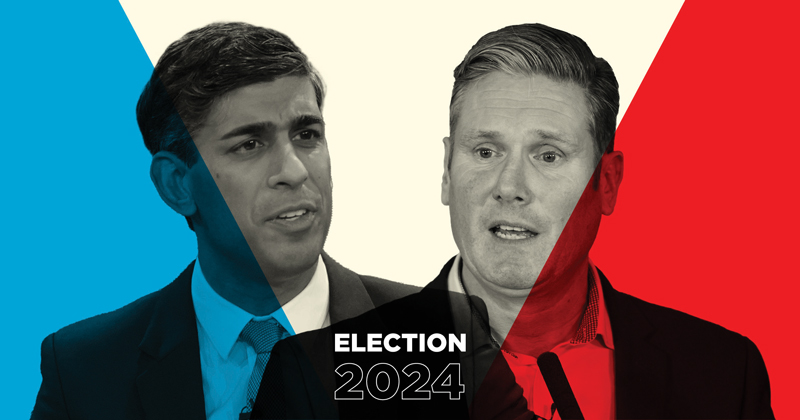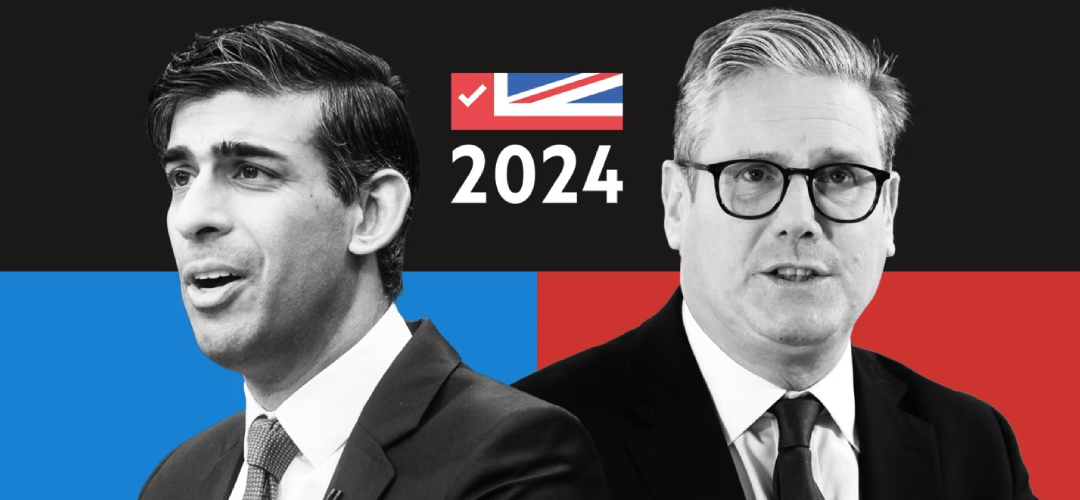The signs are ominous for the Tories; a surging anti-incumbency wave may sweep them off!
The upcoming general election on July 4th is significant for the United Kingdom (UK): after 14 years in power, the Conservative Party is potentially staring at an electoral defeat at the hands of their rivals, the Labour Party.
Prime Minister Sunak called for a snap election as his centre-right Conservative Party government faced dire polls. Leading up to the election, polls show the centre-left Labour clearly in the lead and the Tories behind, closer to other candidates like the Liberal Democrats and Reform.
As per the Guardian newspaper (22 May), the decision for the snap polls was based on “two key statistics- a drop in inflation and falling net migration and a belief that the Labour Party has yet to come up with any real long-term plan which an early election would expose. However, many members of Sunak’s party have been equally surprised by the poll announcement and have been rather vocal about it.
Background
The United Kingdom, comprising England, Northern Ireland, Scotland, and Wales, is split into 650 constituencies. To win an overall majority in parliament, a party must secure 326 seats or a coalition would be formed.
2010 featured the country’s first coalition government since World War II, in which the Conservatives joined with the Liberal Democrats. The Conservatives again forged a coalition in 2017, allying with Northern Ireland’s Democratic Unionist Party.
The last general election in 2019 witnessed a landslide Conservative win, led by Boris Johnson, who promised to “Get Brexit done” following the 2016 decision to leave the European Union (EU). However, the ensuing pandemic threw up new challenges. BREXIT was not by itself a solution to all of Britain’s multifaceted problems, and Boris and his short-lived successor, Liz Truss, did not prove up to the job at hand. Rishi Sunak was then pushed in to plug the gap, a task that he has been struggling to do amidst the war in Ukraine, the rising cost of living and poor economic indicators.
The Economist’s election forecast predicts a landslide Labour win. This is largely based upon polls where Labour is leading with 41 points, the Tories at 21 points, Reform at 16, followed by the Liberal Democrats at 11, and the Green Party at 6. The Financial Times poll tracker mirrors this assessment of voter intention, depicting a clear Labour lead at 41.9 points. In comparison, the Conservatives lag at 21.3 points, followed by the Liberal Democrats at 10.8 and then the Green Party. Its general election projection model estimates Labour could win 450 out of the 650 House of Common seats. Moreover, while the incumbent Conservative government is lagging behind Labour by around 20 points, other opposition parties are much closer on its heels.

Analysis
According to polls, the economy is leading the priority list for most voters. The country witnessed spiralling living costs and unprecedented inflation, which soared to 11.1 per cent in 2022 and only recently subsided closer to target levels.
Another worrying issue is the free public health care system, the National Health Service (NHS). Underfunded and overburdened, the NHS has a ballooning waiting list since the pandemic, adding to public dissatisfaction. As per the National Library of Medicine website, the distribution of numbers of people waiting for day case or elective surgery in all the specialities examined was highly skewed, with between 52 per cent and 83 per cent of patients waiting longer than six months.
Immigration is another key concern, though it is more a priority for Conservative supporters and less so for Labour supporters. The large support that Rishi Sunak’s brainchild, the Rwanda Bill, enjoys amongst the voters is something that the Tory Party would hope to garner their votes.
Mr Kier Starmer, a former public prosecutor and human rights lawyer, leads the Labour charge. Other contenders include Reform UK, a small anti-immigration party, the Liberal Democrats, a small centrist party, and the Green Party. The latter two have significantly gained in recent local elections; the Liberal Democrats are particularly popular in affluent areas like Surrey, where voters are largely right-leaning.
Opinion Polls have consistently brought ill tidings to the Tories; Labour has sustained a double-digit lead for over 18 months. This has been vindicated by the major losses the Conservatives have incurred in local elections, such as for mayors and local councils. This could be attributed to the prevailing resentment at the council level, as nearly one in five councils are likely to go bankrupt this year or next. Fiscal pressure has led local councils to cut social spending, irking the public and contributing to waning voter support for the incumbent Conservative government.
As parties continue to unveil their manifestos halfway through campaigning, it remains to be seen whether the trend in voter preference changes. The Conservatives have pledged to abolish National Insurance completely, a contribution that employed people pay towards a national welfare fund. However, this has been criticized for being fiscally reckless. They have also promised to set a legal cap on migration.
Rishi Sunak has faced considerable detraction over his flagship policies. While the Rwanda bill was finally passed into law, the government’s struggle to implement the bill was an embarrassment. Further, Sunak’s proposed anti-smoking bill will not pass until the general election, again showing a lack of confidence. Meanwhile, Labour has promised to repeal the Rwanda bill and impose Value Added Tax (VAT) on private school fees.
Assessment
- The polls don’t bode well for the Tory government, asLabour’s unequivocal lead shows no signs of falling.
- When converted to a projection of seats in parliament, poll figures indicate a comfortable Labour win or, ifnot, at least a potential decimation of the Tories by opposition parties, which could pave the way for a coalition government.
- In sum, the Sunak government may have to pull a rabbit out of a hat to close the gap in voter support. Only a miracle could turn the tide.




